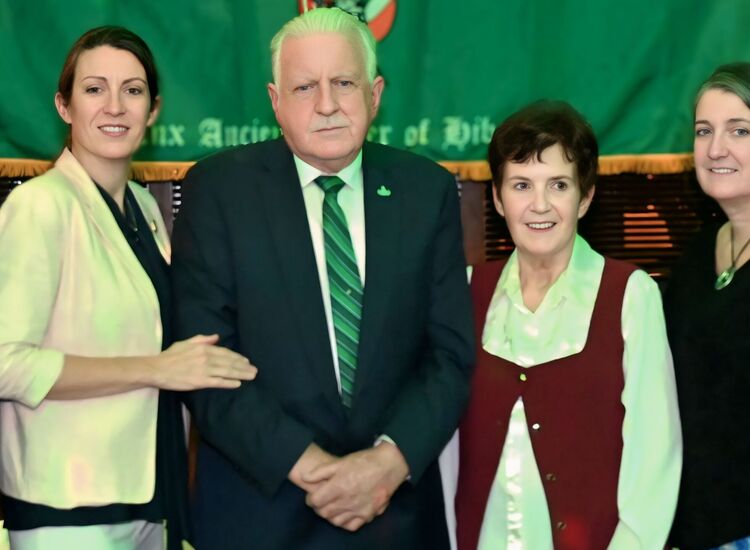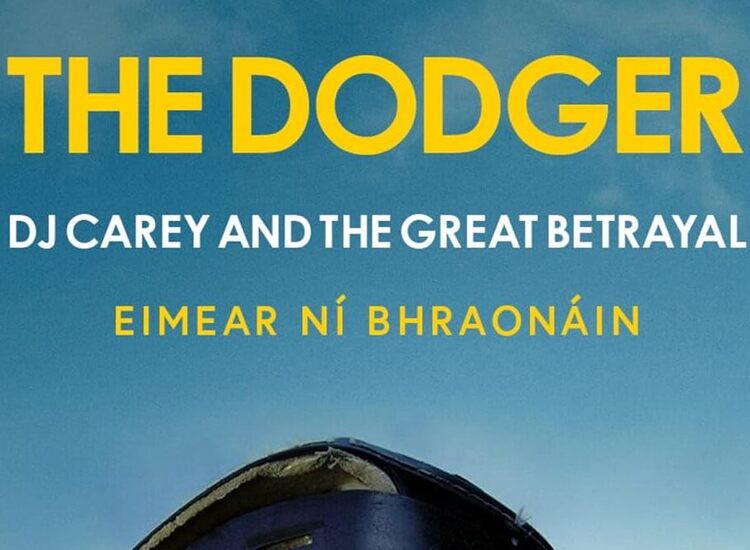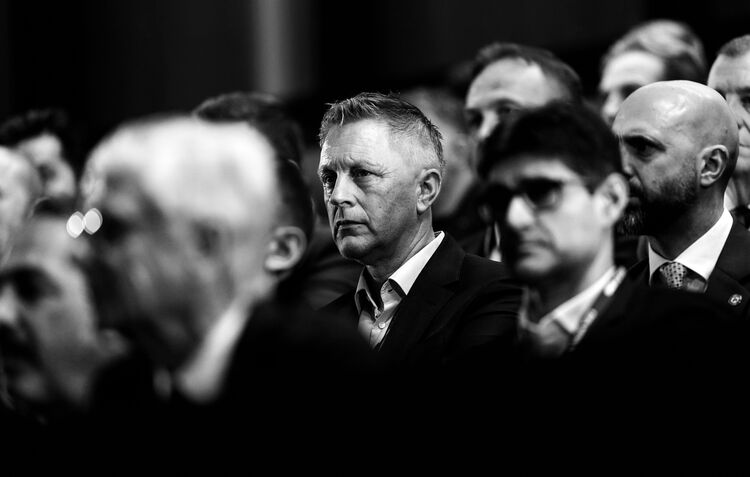Eileen Scully is the author of “In the Company of Men: How Women Can Succeed in a World Built Without Them.”
Page Turner / Edited by Peter McDermott
“Women are accomplishing more every year. We’re graduating from university with bachelors and masters degrees at higher rates than men, and have been since the late ‘70s,” says the homepage of the Rising Tides, a global consulting and advisory firm. “Seventy percent of high school valedictorians are women. We're entering the workforce at higher rates globally every year, and are staying in the workforce longer.
“But those achievements start to flatten once we enter the workforce. Our collective wisdom and experience is often overlooked or ignored, resulting in lower lifetime earnings than our male peers, and tremendous opportunity cost to the economies into which we contribute,” it continues.
“The Rising Tides was created to equip organizations with the data and knowledge to maximize the potential of their entire workforce through adapting workplace cultures and practices to work better for every employee.”
Eileen Scully, the founder of the Rising Tides, has written “In the Company of Men,” which celebrates women who’ve become a “first” and then have built upon that.
“There are lots of great stories about the first woman to achieve success in male space,” said Scully, who was an Irish Echo Community Champion last year and named to the Irish America Business 100 in 2018 and 2019. “But I wanted to tell the stories of the women who are changing those spaces from the inside to make them more accessible for everyone.”
The book subtitled “How Women Can Succeed in a World Built Without Them” takes on, Skully said, “the NFL, the world of venture capital, Hollywood, the Catholic Church, food production and the pornography industry — just a few of the heavily male-dominated spaces in which women have had to chip away at existing structures to build a better place that works for all.”
At a TEDx Talks event in Sfax, Tunisia, in 2018, Scully said, “I was in my late 20s when I realized that the world was built by and for white straight men. Every law, every system, every structure was for them. And the rest of us have had to fight our way into those.”
That presentation introduced some of Scully’s key concepts, but focussed in particular on the importance of professional generosity, with high-profile examples from media coverage of the NFL and the USA Women’s National Soccer team.
“Show the client who’s actually producing the work behind the scenes,” said the Rising Tides founder, who was born to recent Irish immigrants before being adopted by the Scullys. “Use your power and your position to elevate other people wherever possible.
“It may break some systems. You may be told you’re not supposed to bring this person to a client. Don’t listen to that,” Scully said. “Do what you know is the right thing for that person.”

Eileen Scully
Date of birth: You’re joking, lol!
Place of birth: Connecticut
Children: one grown daughter living in London
Residence: New Haven, Conn.
Published works: “In the Company of Men: How Women Can Succeed in a World Built Without Them.”
What is your writing routine? Are there ideal conditions?
For me, the only way it was going to get done was with a firm deadline from my publisher, and a set schedule and specific place to write. I did most of my writing in the Day Missions Reading Room at the Yale Divinity School library, one of the most beautiful and peaceful places I’ve ever found. I would tuck myself into the top far corner, put on my headphones, and work from 8:30 a.m. until about 1 p.m. or 2 p.m. every day. I had to maintain a very structured writing schedule, otherwise I could easily have lost hours researching fascinating topics that were related to but not relevant to my book. Strict discipline was essential for me.
What advice do you have for aspiring writers?
The most salient thing I heard while writing my book was a Bob Woodward quote: “You never really finish a book, you just stop working on it,” or something like that. Set a firm deadline and just be done with it. It’s never going to be perfect, and no one else will read it as critically as you will.
Name the books that are memorable in terms of your reading pleasure.
Edna O’Brien, “Country Girls.” And pretty much anything by David Sedaris, although the audiobooks are even funnier as he does the narration.
What book are you currently reading?
“The Warmth of Other Suns” by Isabel Wilkerson. A brilliant narrative nonfiction about Northern migration during the Jim Crow era here in the U.S. An incredible historically relevant work about the recent past about which so many of us know so little, yet is foundational to so many of our current injustices. I’ve about 100 pages to go, and once I finish that, I’m moving on to a biography of Marie Colvin. My 2020 goal is to read only books authored by women. So much of literature and journalism is dominated by male voices and male perspectives; I am committed to changing that and being intentional in my selections.
Is there a book you wish you had written?
In all seriousness, I wish there were women credited with writing books of the New Testament. The loss of those voices has impacted every Christian woman ever since. All of the poetry from Seamus Heaney. I love poetry but am lousy at writing it. I read a lot of biographies and memoirs, so more than writing a book, there are many lives I wish I’d had the courage to live.
Name a book that you were pleasantly surprised by.
I am a data nerd, having spent too many years as a researcher in technology, so when an author can tell a great story using solid data, I am pulled in. Two authors doing that masterfully right now are Caroline Criado Perez and Angela Saini, both writing about how women have been left out of important scientific and design research. Saini also writes about race science, vital to understanding from where so many incorrect assumptions were born.
If you could meet one author, living or dead, who would it be?
Doris Kearns Goodwin, and we’d meet for a weekend, so I could ask her a million questions about American history. Or maybe we’d need a semester. At least enough time for me to write a dissertation or two.
What book changed your life?
I have always been a reader. Much of my childhood was spent on the floor of my bedroom closet with a book. The first book I can remember reading, and the one that seeded my early sense of wanderlust, was “The Mixed Up Files of Mrs. Basil E. Frankweiler.” Before that, I had never felt as though I was on an adventure while reading a book. Running away from home and living in a museum in New York City? Yes, please! I now buy it for all of my young friends. It’s delightful.
What is your favorite spot in Ireland?
That’s not fair! I’ll say Valentia Island, as it was the first time I experienced true Irish culture on my first trip to Ireland in the ‘80s when I was a kid. I traveled with friends, and stayed with their family there, with trips to the big city of Cahersiveen, and I loved it so much I could have stayed forever. This was years before I knew that my birth parents were both born in Ireland, which of course explained so much about why I didn’t want to leave. Now, every time I go, I bring home a pound of dirt. My hope is that someday I’ll own the whole island.
You're Irish if…
You’re always ready to share a story, and you try to leave people smiling.
For more information go to inthecompanyofmenbook.com and www.therisingtides.com.








